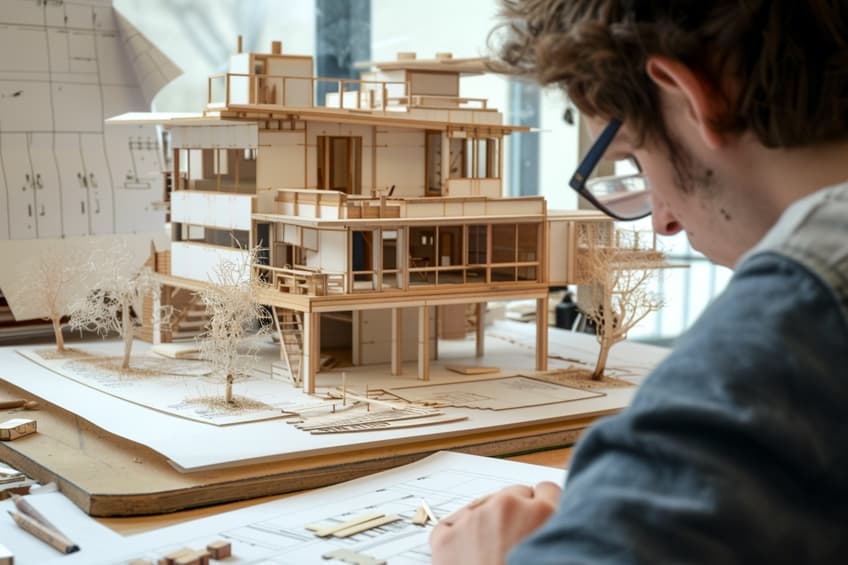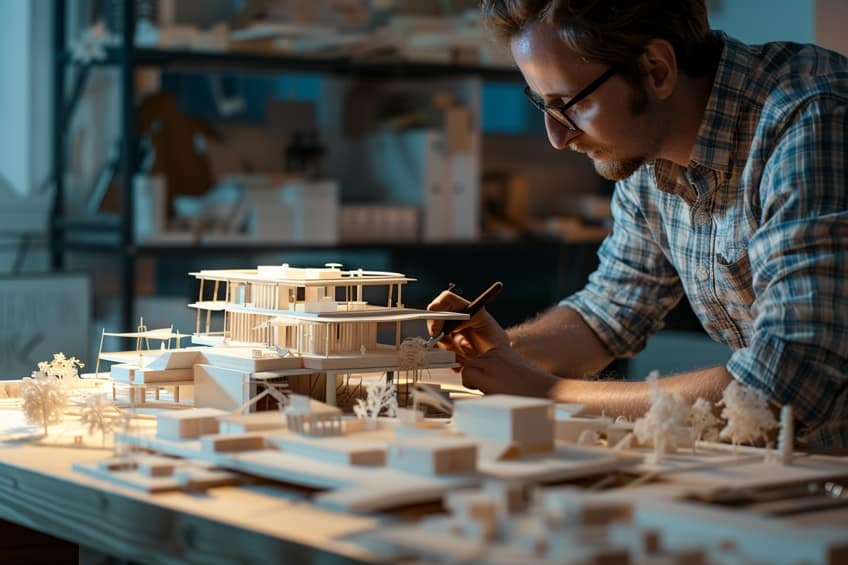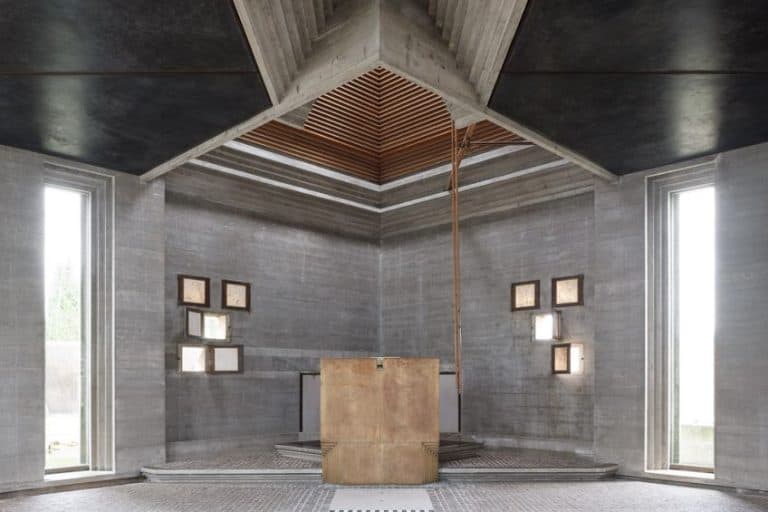10 Interesting Facts About Architects – Design Geniuses
Architecture is a rich tapestry woven with creativity, innovation, and cultural significance, and architects stand as its master artisans. Beyond the blueprints and structures they conceive, architects harbor a wealth of fascinating insights and anecdotes that often remain hidden behind the façade of their profession. Delving into the realm of architecture unveils a trove of captivating facts that shed light on the evolution of human ingenuity, the symbiosis between form and function, and the profound impact of design on our daily lives. From iconic landmarks to the subtle nuances of spatial arrangement, exploring these intriguing facets offers a glimpse into the captivating world of architects and the profound influence they wield on the built environment.
Table of Contents
- 1 What Does an Architect Do?
- 2 10 Interesting Facts About Architects
- 2.1 Architecture Was Once an Olympic Sport
- 2.2 Architects Have to Complete Years of Education and Training
- 2.3 Architects Design More Than Buildings
- 2.4 Architectural Styles Reflect Cultural Values
- 2.5 LEGO Used to Make Special Bricks for Architects
- 2.6 The Sims Was Originally Designed as an Architecture Simulator
- 2.7 Architects Don’t Only Work With Math
- 2.8 Architects Have a Range of Professional Skills
- 2.9 Architects Don’t Need to Be Good at Drawing to Be Successful
- 2.10 Architects Embrace Technology in Their Work
- 3 Frequently Asked Questions
What Does an Architect Do?
An architect is a professional who designs and oversees the construction of buildings and other structures. Their role involves translating the needs and desires of clients into feasible, functional, and aesthetically pleasing designs. Architects are responsible for creating detailed plans, including drawings and specifications, that outline the layout, materials, and structural elements of a project.
They collaborate with engineers, contractors, and other professionals to ensure that designs meet safety standards, budget constraints, and regulatory requirements.
Throughout the construction process, architects provide guidance and supervision to ensure that the project is executed according to the original vision and specifications. Ultimately, architects play a pivotal role in shaping the built environment, enriching communities, and enhancing the quality of life for individuals through thoughtful and innovative design solutions.
10 Interesting Facts About Architects
In this section, we delve into a diverse array of intriguing facts about architects and the profession they inhabit. From the unexpected history of architecture as an Olympic sport to the multifaceted skills and talents architects possess, we explore the dynamic and often surprising facets of architectural practice. Join us on a journey through time and innovation as we uncover the unique insights and anecdotes that illuminate the world of architecture and the architects who bring it to life!

Architecture Was Once an Olympic Sport
In the early 20th century, architecture was briefly included as an Olympic event. The objective was for architects to design buildings that epitomized the ideals of the modern Olympic movement.
This unique competition aimed to showcase architectural prowess and celebrate innovation in design, albeit the event’s short-lived tenure within the Olympic games.
Architects Have to Complete Years of Education and Training
Becoming an architect requires a significant commitment to education and training. Prospective architects typically pursue a five-year professional degree in architecture, followed by a period of internship and licensure examinations. This rigorous process ensures that architects acquire the necessary knowledge, skills, and expertise to practice safely and effectively within the profession.

Architects Design More Than Buildings
Beyond designing buildings, architects often extend their expertise to landscape architecture, interior design, urban planning, and even industrial design. Their skills encompass a broad spectrum of spatial design disciplines. Architects are versatile professionals whose expertise extends beyond mere building design. From crafting immersive interior environments to shaping entire urban landscapes, their influence transcends traditional boundaries.
In embracing diverse disciplines, architects blend creativity with functionality, enriching the built environment with innovative solutions that resonate across various scales and contexts.
Architectural Styles Reflect Cultural Values
Architectural styles evolve over time and often reflect the cultural, social, and technological values of their era. From the grandeur of ancient Greek temples to the sleek minimalism of modernist skyscrapers, each architectural style tells a story of its time and place.

Architectural styles serve as visual chronicles of human history, encapsulating cultural, social, and technological ideals within their built forms. From the ornate embellishments of Baroque architecture to the clean lines of Bauhaus design, each style embodies the values and aspirations of its epoch.
By studying architectural evolution, we gain insight into the dynamic interplay between society, technology, and the built environment.
LEGO Used to Make Special Bricks for Architects
LEGO has produced special sets aimed at architects and design enthusiasts, featuring unique bricks and elements tailored for architectural modeling. These sets allow architects to explore design concepts, experiment with spatial arrangements, and communicate ideas in a playful and tactile manner, bridging the gap between creativity and construction.
The Sims Was Originally Designed as an Architecture Simulator
The popular video game, The Sims, was originally conceived as an architecture simulator. Players could design and build virtual homes, experiment with interior layouts, and explore architectural possibilities in a simulated environment. While the game evolved to encompass broader gameplay elements, its architectural origins remain a testament to the enduring fascination with design and creativity.

Architects Don’t Only Work With Math
While mathematics plays a crucial role in architectural design, architects also draw upon a diverse range of skills and disciplines. They blend creativity, problem-solving, communication, and technical expertise to translate conceptual ideas into built reality, fostering innovation and collaboration across various domains.
Architects Have a Range of Professional Skills
Architects possess a diverse skill set that extends beyond design and technical knowledge. They excel in project management, communication, negotiation, and critical thinking, navigating complex challenges and balancing competing priorities to deliver successful outcomes. Their multifaceted skill set enables architects to engage with clients, consultants, and stakeholders effectively, fostering productive relationships and ensuring project success.

Architects Don’t Need to Be Good at Drawing to Be Successful
While proficiency in drawing is beneficial, architects can leverage various tools and techniques to communicate design ideas effectively. Digital modeling software, hand sketches, and physical models offer alternative means of visualizing architectural concepts, allowing architects to convey their vision regardless of drawing ability.
Ultimately, effective communication and problem-solving skills are paramount to success in the architectural profession.
Architects Embrace Technology in Their Work
Architects harness cutting-edge technologies such as Building Information Modeling (BIM), parametric design software, and virtual reality to streamline the design process, enhance collaboration, and optimize building performance. These tools empower architects to explore innovative design solutions, analyze complex data, and visualize projects in immersive virtual environments, pushing the boundaries of architectural practice and shaping the future of the built environment.

The world of architecture is not merely a realm of blueprints and steel; it is a vibrant tapestry woven with the threads of creativity, innovation, and cultural significance. Through exploring the myriad facets of architectural practice, from ancient wonders to contemporary marvels, we unearth a wealth of fascinating facts that illuminate the ingenuity and vision of architects throughout history. As stewards of the built environment, architects shape the landscapes of our cities and the spaces we inhabit, leaving an indelible mark on the fabric of human existence. By delving into the captivating world of architects and their intriguing tales, we gain a deeper appreciation for the artistry and intellect that underpin the structures that surround us, enriching our understanding of the profound impact of design on our lives.
Frequently Asked Questions
Can Architects Specialize in Specific Types of Design?
Yes, architects can specialize in various types of design, ranging from residential and commercial buildings to landscape architecture, interior design, and urban planning. Specialization allows architects to focus their expertise and creativity in specific areas of interest, catering to diverse client needs and project requirements.
How Do Architects Stay Inspired and Informed About New Design Trends?
Architects stay inspired and informed by actively engaging in professional development, attending industry conferences, workshops, and exhibitions, and networking with peers and thought leaders. They also draw inspiration from diverse sources, including art, nature, technology, and cultural trends, to infuse creativity and innovation into their design work.
Can Architects Work Internationally?
Yes, architects have the opportunity to work internationally, collaborating on projects in different countries and cultures. Globalization and advances in technology have facilitated cross-border collaboration, allowing architects to expand their professional horizons and contribute to diverse architectural contexts worldwide.
Cite this Article
Isabella, Meyer, “10 Interesting Facts About Architects – Design Geniuses.” Art in Context. March 15, 2024. URL: https://artincontext.org/10-interesting-facts-about-architects/
Meyer, I. (2024, 15 March). 10 Interesting Facts About Architects – Design Geniuses. Art in Context. https://artincontext.org/10-interesting-facts-about-architects/
Meyer, Isabella. “10 Interesting Facts About Architects – Design Geniuses.” Art in Context, March 15, 2024. https://artincontext.org/10-interesting-facts-about-architects/.








